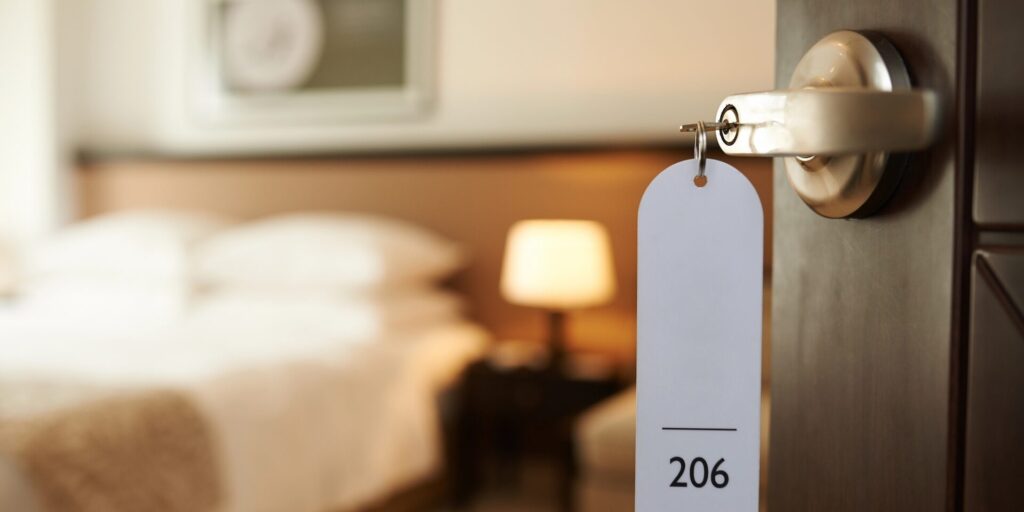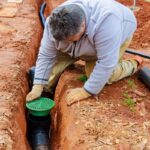In the hospitality industry, cleanliness and comfort are paramount. Hotels strive to provide a welcoming environment where guests feel safe, relaxed, and worry-free. However, pest issues can quickly disrupt a guest’s experience and harm a hotel’s reputation. Ensuring effective pest control in hotels is essential, not only for guest satisfaction but also for maintaining high standards of health and safety. With a proactive approach, including services from providers like Strong Pest Control, hotels can stay pest-free and continue delivering quality experiences.
The Importance of Pest Control in Hotels
Pest infestations in hotels can lead to numerous problems, including:
- Negative Guest Experiences: Guests who encounter pests, whether in their rooms or communal areas, are likely to leave with a poor impression of the hotel. In the age of online reviews, a single bad experience can have widespread repercussions.
- Health Risks: Pests carry diseases and bacteria that pose health risks to both guests and staff. Cockroaches, rodents, and flies, for example, are known to spread harmful pathogens.
- Damage to Property: Termites, rodents, and other pests can damage hotel infrastructure, from wooden furniture to wiring, leading to expensive repairs.
- Compliance with Health Regulations: Hotels must adhere to local health and safety regulations, which often include strict pest control standards. Failure to meet these can result in fines and other penalties.
Common Pests Found in Hotels
Hotels can attract a variety of pests due to the constant flow of people, luggage, and food services. Here are some of the most common pests found in hotels:
- Bed Bugs: Often brought in by guests, bed bugs can infest mattresses, bedding, and furniture, making them difficult to control without professional intervention.
- Cockroaches: These pests are drawn to warm, moist areas and are often found in kitchens, bathrooms, and basements.
- Rodents: Mice and rats seek food and shelter, particularly in storage areas and near kitchens.
- Ants: Ants are known to invade kitchens and other areas where food is present.
- Flies: Often found in dining areas and kitchens, flies can contaminate food and spread bacteria.
Understanding these pests’ habits and preferences can help hotel staff take preventive measures to keep them out.
Proactive Pest Prevention Strategies for Hotels
Effective pest control in hotels starts with prevention. Here are some proactive strategies that can help maintain a pest-free environment:
1. Regular Inspections
Conducting regular inspections is essential for identifying and addressing potential pest problems early. Inspections should focus on high-risk areas such as kitchens, laundry rooms, guest rooms, and storage areas. Professional pest control companies like Strong Pest Control offer routine inspections tailored to the unique needs of hotels, helping to spot issues before they escalate.
2. Proper Waste Management
Proper waste disposal is critical in preventing pests. Ensure that trash is stored in sealed containers and removed frequently. Outdoor garbage areas should be kept clean, with lids secured on bins to prevent pests from accessing food waste.
3. Seal Entry Points
Pests can enter through even the smallest gaps and cracks. Inspect the hotel’s exterior regularly to identify and seal any potential entry points, including around windows, doors, and utility lines. Installing door sweeps and weather stripping can also help keep pests from entering.
4. Maintain Cleanliness in Guest Rooms and Common Areas
Regular cleaning in all areas of the hotel helps reduce the risk of attracting pests. Clean guest rooms thoroughly after each check-out, focusing on vacuuming carpets, cleaning under beds, and disinfecting surfaces. In communal areas, such as lobbies and lounges, keep floors and surfaces free of crumbs and spills.
5. Focus on Kitchen Hygiene
In hotels, kitchens and dining areas are particularly vulnerable to pest infestations. Implement strict hygiene practices in these areas, including:
- Storing food in airtight containers
- Cleaning up spills immediately
- Regularly sanitizing surfaces and equipment
- Disposing of food waste promptly
Bed Bug Management in Hotels
Bed bugs are a particular concern for hotels, as they can hitch a ride on guests’ luggage and clothing, spreading from room to room. To manage bed bugs effectively:
- Inspect Rooms Regularly: Check mattresses, bed frames, and furniture for signs of bed bugs, such as small, rust-colored stains or shed skins.
- Use Protective Covers: Encase mattresses and box springs in bed bug-proof covers to reduce hiding spots and make infestations easier to spot.
- Train Staff: Housekeeping and maintenance staff should be trained to identify bed bug signs and report any suspicions immediately.
If bed bugs are detected, professional treatment is recommended. Strong Pest Control provides thorough bed bug management services, ensuring complete eradication and minimizing disruption to hotel operations.
Rodent Control in Hotels
Rodents are drawn to hotels for their warmth, food sources, and hiding places. Effective rodent control includes:
- Using Traps and Baits: Place traps and bait stations in strategic locations to control rodent populations.
- Securing Food Sources: Keep kitchens and storage areas clean, and store food in rodent-proof containers.
- Seal Openings: Block any gaps or holes that rodents could use to enter the building.
Addressing Cockroach Infestations
Cockroaches are resilient pests that can quickly spread in hotels if not managed effectively. To prevent cockroach infestations:
- Eliminate Moisture: Repair any leaks and use dehumidifiers in damp areas to reduce the moisture cockroaches are drawn to.
- Store Food Properly: Like other pests, cockroaches are attracted to food, so ensure that food is stored securely.
- Maintain Clean Drains: Cockroaches can live in drains, so regular drain cleaning is essential in kitchens and bathrooms.
The Benefits of Professional Pest Control for Hotels
While preventive measures are vital, professional pest control services offer additional benefits:
- Comprehensive Inspections and Treatments: Professionals like Strong Pest Control provide in-depth inspections and targeted treatments that address both visible and hidden pest issues.
- Customized Pest Management Plans: Every hotel is unique, and pest control providers can create customized plans that suit specific needs.
- Safe and Effective Solutions: Professional treatments use products and methods that are safe for guests and staff, while effectively controlling pests.
Sustainable Pest Control Solutions for Hotels
Hotels increasingly seek eco-friendly pest control options to align with sustainable practices. Strong Pest Control offers green alternatives that are safe for both the environment and guests, including natural repellents and low-impact treatments. Sustainable pest control not only keeps pests at bay but also supports a hotel’s commitment to environmental responsibility.
Final Thoughts on Hotel Pest Control
Pest control is a critical aspect of hotel management, ensuring that guests enjoy a safe and comfortable stay. By taking preventive measures and partnering with trusted professionals like Strong Pest Control, hotels can maintain high standards and protect their reputation. With consistent efforts and strategic planning, hotels can create a welcoming environment free of pests, promoting positive guest experiences and long-term success.






